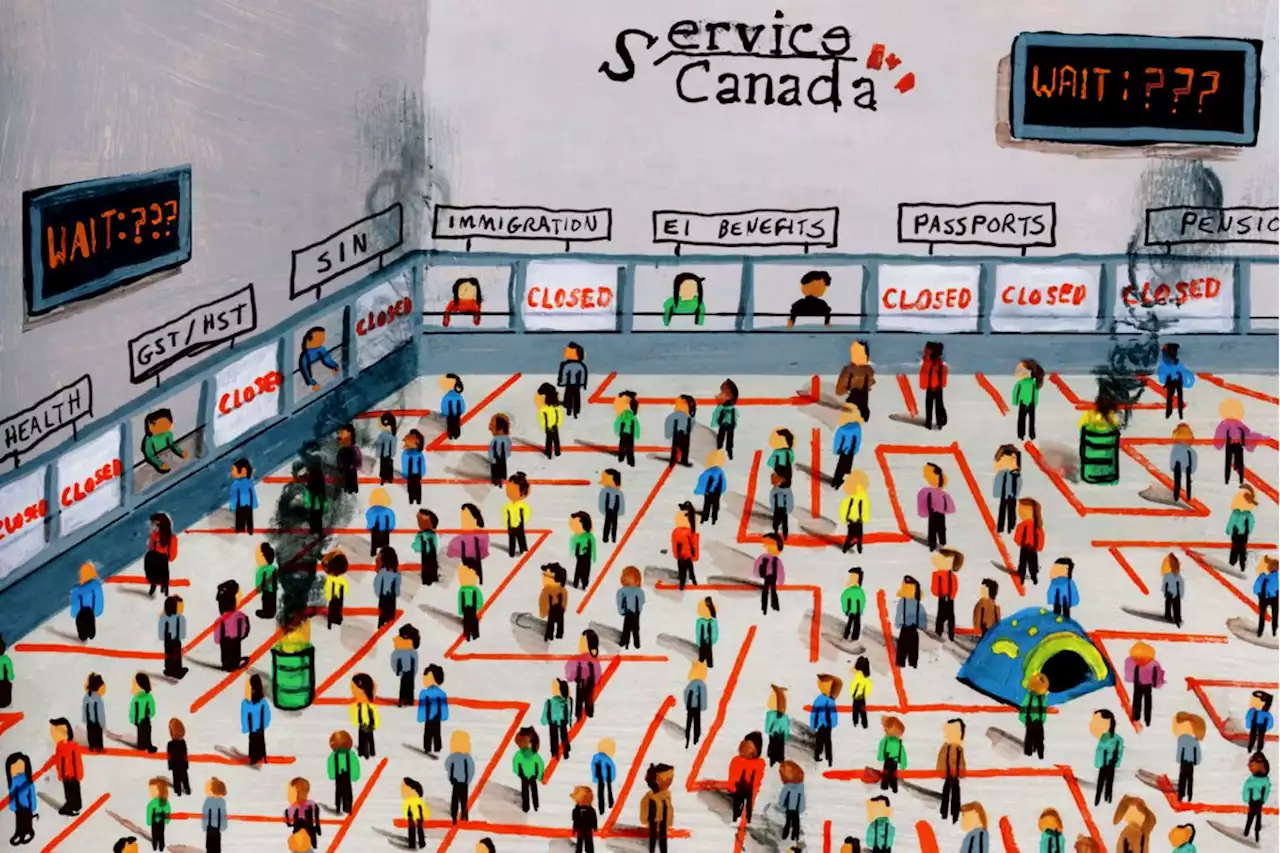With citizens clamouring for better services, the leaders of our vital public institutions need a better approach to solving problems, within systems that are no longer fit for purpose
The Wright flyer, shown in replica at the Smithsonian National Air and Space Museum, was a far simpler machine than B-17 bombers like this one in Cranbrook, B.C.Consider the nature of these categories through the history of aviation. The Wright flyer – built through a tremendously innovative process of measurement, experimentation and iteration – was a fairly simple machine.
The problems that our civic institutions face today are complex problems – but public-sector leaders largely treat them as complicated problems. Our institutions typically rely on outdated, expertise-based approaches and traditional planning processes to develop their work forces and build technological infrastructure. As we have seen, the resulting systems are inflexible and ineffective. They do not scale when demand surges, and they can leave citizens in the lurch.
There is no “right” answer for how to speed up an immigration system, improve efficiency in health care or strengthen our financial systems – there are just different approaches that are more or less likely to meet the objectives we’ve specified. But these problems do demand certain qualities in the leaders facing them: curiosity , collaboration and experimentation .
It might seem like abandoning planning would result in chaos to systems that are actively being used – but isn’t that essentially what we have now? Citizens are already waiting in line for border crossings and passports. Banking failures are already costing our governments and financial institutions hundreds of millions of dollars. Health care is already at a breaking point.
Decisions made in Canada's Parliament, and the agencies that answer to it, can make a big difference in how the public sector solves problems affecting Canadians.Things are less straightforward in the public sector, where legislation and governance practices often dictate how problems are solved – which is to say, from the top down. Even so, leaders still influence how their organizations work. They can build teams that readily share concerns and improve decision-making.
What about the stereotype of bureaucrats being slow and stodgy? Well, that attitude is a result of the system in which they operate. A leader who’s able to change that system would be able to empower bureaucrats to help solve the problems, so that they do not feel like they are only part of the drudgery of implementation. That was Toyota’s early insight: Workers weren’t just there to build cars; they were also there to teach the company how to build cars better.
Canada Latest News, Canada Headlines
Similar News:You can also read news stories similar to this one that we have collected from other news sources.
 Opinion: Trudeau’s tax threat to grocery chains won’t solve food price problemsNo matter what the policy issue or problem, the Trudeau government’s approach is almost always the same: more government. Read more.
Opinion: Trudeau’s tax threat to grocery chains won’t solve food price problemsNo matter what the policy issue or problem, the Trudeau government’s approach is almost always the same: more government. Read more.
Read more »
 Opinion: Trudeau’s tax threat to grocery chains won’t solve food price problemsNo matter what the policy issue or problem, the Trudeau government’s approach is almost always the same: more government. Read more.
Opinion: Trudeau’s tax threat to grocery chains won’t solve food price problemsNo matter what the policy issue or problem, the Trudeau government’s approach is almost always the same: more government. Read more.
Read more »
 Opinion: No single cause to blame for housing crisisThe housing crisis is a complex, multifaceted problem
Opinion: No single cause to blame for housing crisisThe housing crisis is a complex, multifaceted problem
Read more »
 Opinion: Support for trans kids and parent-child relationships are not mutually exclusiveAs experts, we know that a transgender young person’s best interests are served by their parents’ unconditional love and care
Opinion: Support for trans kids and parent-child relationships are not mutually exclusiveAs experts, we know that a transgender young person’s best interests are served by their parents’ unconditional love and care
Read more »
 Opinion: Despite strained Indian ties, Canada must stay the course on Indo-Pacific strategyJust as trade and investment with China continued during the crisis of the ‘two Michaels,’ Canada should continue to engage with India economically
Opinion: Despite strained Indian ties, Canada must stay the course on Indo-Pacific strategyJust as trade and investment with China continued during the crisis of the ‘two Michaels,’ Canada should continue to engage with India economically
Read more »
 Opinion: With authoritarianism on the rise, Canada should expect more foreign interferenceEmboldened regimes are determined to crack down on opponents at home and abroad – regardless of political norms and international law
Opinion: With authoritarianism on the rise, Canada should expect more foreign interferenceEmboldened regimes are determined to crack down on opponents at home and abroad – regardless of political norms and international law
Read more »
